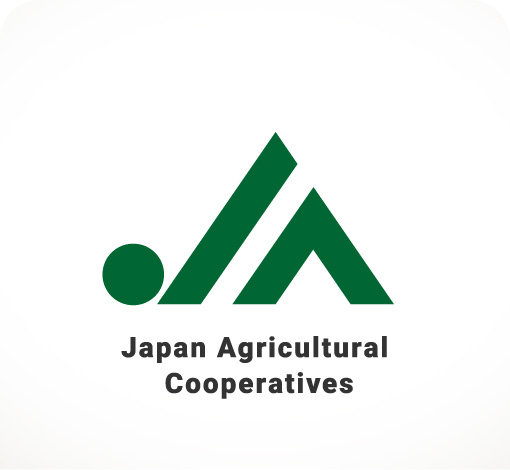Japan’s Alarming Rice Shortage: A Staple Crisis Unfolds
Japan, a country where rice is more than just a food—it's a cultural cornerstone—is now facing a surprising and deeply unsettling crisis: a national rice shortage. In 2024, supermarket prices for a 5-kilogram bag of rice soared to 5,000 yen (approx. 250 RMB), nearly double compared to the same time last year—a historic high. As a result, many households have reluctantly turned to alternatives like noodles, bread, or potatoes, leaving their rice cookers idle. This shortage has not only shaken dinner tables across the country, but also triggered a wave of anxiety throughout society: the fear of not having rice at all.

A Perfect Storm: Weather, Demand, and Systemic Weakness
Several interwoven factors have fueled this crisis. The most immediate cause was extreme weather. In the summer of 2024, Japan experienced unprecedented high temperatures and drought. The result: a dramatic drop in rice yields, especially in the Tohoku region, known for its premium rice. During the critical heading stage of the crop, continuous heatwaves caused yields to plunge by 20–30%, choking supply at its source.

Adding to the strain was Japan's booming post-pandemic tourism industry. In 2024, over 35 million foreign tourists visited the country, pushing up rice demand in restaurants nationwide. Sushi bars, ramen shops, and izakayas all saw spikes in consumption. However, domestic production simply couldn’t keep up. With demand outpacing supply, prices surged.
The Hidden Power of Nōkyō: A Structural Crisis
At the core of the problem lies a deeper, systemic issue within Japan’s agricultural framework: the monopoly of the powerful agricultural cooperative known as Nōkyō. Far from a mere farmers' association, Nōkyō is a vast economic and political force, with influence spanning farming, finance, insurance, and lobbying. Its financial arm, Norinchukin Bank, manages over 100 trillion yen in assets (approx. 5 trillion RMB), making it one of the silent giants of Japan’s economy.

During the crisis, the government released 410,000 tons of reserve rice to stabilize supply. However, 95% of that rice was acquired by Nōkyō through the bidding system, who then resold it at inflated prices—effectively manipulating the market. Only 7% of this rice reached everyday consumers. The public saw this as profiteering amid hardship.

Compounding the issue is Japan’s decades-old “paddy field reduction policy,” designed to control overproduction and stabilize prices by incentivizing farmers to grow fewer rice crops. While effective short-term, this policy gradually eroded Japan’s food self-sufficiency rate, which by 2024 had plummeted to 37%—far below the average among developed nations. When climate disruptions struck, the market had no cushion to fall back on.
A Political Scandal Sparks Public Outrage
Public frustration boiled over when then-Minister of Agriculture, Forestry and Fisheries, Taku Etō, made a tone-deaf remark: “I’ve never had to buy rice. My family has so much we could sell it.” The statement, seen as dismissive and elitist, ignited nationwide anger. Despite later backpedaling, Etō was forced to resign.

In the wake of the scandal, the government needed a bold new face to address the crisis. Prime Minister Shigeru Ishiba appointed 44-year-old political rising star and former Environment Minister Shinjiro Koizumi to lead the Ministry during this tumultuous time. At his inaugural press conference, Koizumi declared: “I want to be the ‘Rice Minister’ and put this issue first.” The statement, simple yet symbolic, signaled his determination to act decisively.
Koizumi's Emergency Interventions: Disrupting the Status Quo
Koizumi moved swiftly with bold reforms to stabilize rice prices and dismantle the hold of Nōkyō.
End Bidding, Enforce Direct Distribution
Koizumi halted the traditional bidding system for reserve rice and introduced “discretionary sales contracts” with supermarkets and convenience stores. This allowed rice to reach shelves quickly and at affordable prices, bypassing Nōkyō’s control.
The initiative worked: from May 31, major supermarket chains in Tokyo, Chiba, and Nagoya began selling 5-kilogram bags of rice at prices as low as 2,138 yen. Consumers responded in droves, clearing shelves. Koizumi even appeared at an AEON supermarket in Tokyo’s Shinagawa Ward, declaring confidently that “private distribution channels exceeded expectations, and high prices are being reversed.”

Crack Down on Scalpers and Restore Order
With the sudden availability of affordable rice, scalpers emerged—buying in bulk and reselling at inflated prices online. Koizumi took swift action, urging major e-commerce platforms to ban reselling of reserve rice. On June 10, he cited the Emergency Measures for Stabilization of National Life Act, warning that violators faced up to 1 year in prison or a 1 million yen fine.
Looking Ahead: Imports, Reform, and Political Stakes
Koizumi’s boldness didn’t stop with short-term fixes. He publicly floated the possibility of emergency rice imports if reserves proved insufficient. This shocked many, as Japan traditionally maintains strict barriers against imported rice to protect its domestic industry. In 2024, only 8% of rice consumed in Japan was imported, primarily from California and Thailand.
This proposal challenged both Nōkyō and entrenched agricultural protectionism. In a symbolic move, Koizumi quoted his father, former Prime Minister Junichiro Koizumi: “Agricultural policy should not have sacred and untouchable areas.” It was a clear signal that he intended to pursue deeper reform.
Public support surged. Polls showed Koizumi’s approval ratings rising, helping boost the overall popularity of the Ishiba cabinet ahead of the July House of Councillors election. If Koizumi succeeds in resolving the rice shortage and reforming Japan’s agricultural system, he may well be paving the path toward the nation’s highest office.
Related Articles
You may also like...
International Hostess Bar Since 1993
夢
ORIGIN
・ International Hostess Bar since 1993
・ Japanese Hospitality with International Service
・ Diverse and Charming Floor Ladies
・Located in Shinjuku, Tokyo
・Transparent Pricing
・Easy Online Reservations






















